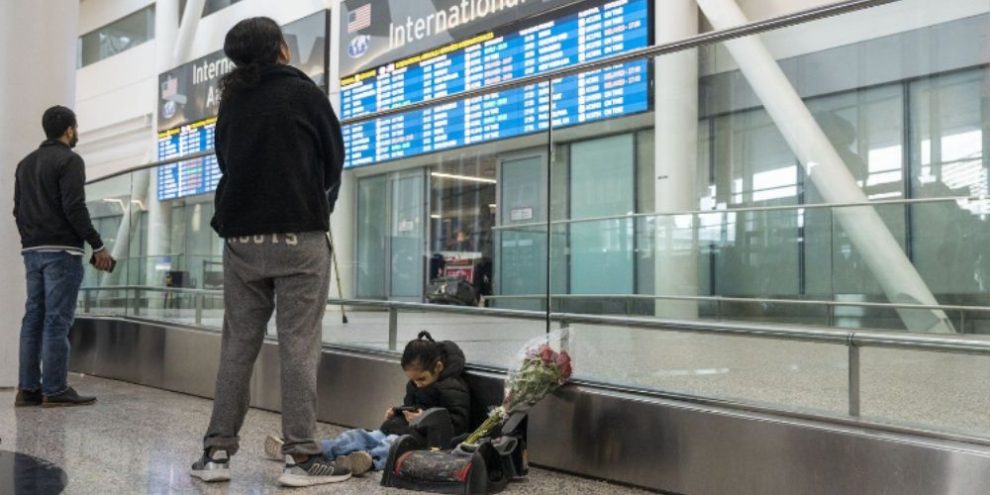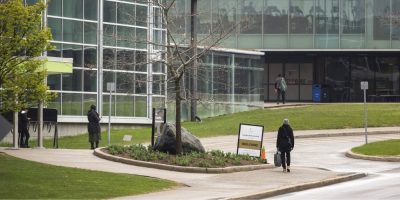
Thousands of international students expected to study at three Ontario colleges are missing the fall semester, after Ottawa announced it would further tighten Canada's study permit system.
Some school officials are attributing the dramatic enrollment decline to a chilling effect created by the federal government's policy, and to visa delays that have resulted from a stricter approach.
Glenn Vollebregt, the president of St. Lawrence College in Kingston, Ont., said his college was expecting 1,600 new international students this fall, but only 775 are enrolled in courses.
"This is not normal," said Vollebregt, who confirmed many of the students had trouble getting their visas on time, and the college has approved deferral requests for about one-third of the students.
"This is ... a direct result of some of the federal policy decisions that we've seen take place."
Ottawa announced in January it would cap international study permits in 2024.
Last month, Immigration Minister Marc Miller announced he would lower the cap by another 10 per cent, meaning some 300,000 fewer permits would be issued over the next few years. Canada plans a limit of 437,000 study permits in 2025 and 2026.
Vollebregt said the policy means Canada's brand as an education destination has taken a hit. "Essentially it's Canada saying we're closed for business," he said.
Michael McDonald, director of government relations and policy for Colleges and Institutes Canada, said colleges have expressed deep concerns about a drop in international student enrolments this fall.
"We are expecting sizable declines across our membership," he said.
McDonald said he thinks the federal changes have brought uncertainty — both for schools, which rely heavily on international students' tuition fees, and for potential students, who are deciding whether to come to Canada to continue their studies.
"We think that kind of uncertainty further depresses ... enrolments and puts into question a lot of the recruitment efforts," he said.
Ottawa insists a cap on international students is necessary to bring stability to the country's ballooning population of temporary residents.
"The annual growth in the number of international students couldn’t be sustained while ensuring students receive the support they need," said Michelle Carbert, an Immigration Department spokesperson.
"International students are not responsible for the challenges that communities are facing, but the recent skyrocketing growth of this population puts significant pressure on services."
Carbert said foreign students are encouraged to apply for visas as soon as they get a letter of acceptance from learning institutions to avoid delays.
Mohawk College, which has several campuses in different Ontario cities, welcomed close to 1,500 students from other countries this fall — about 38 per cent fewer than last year, said Katie Burrows, its vice-president for international students.
"This is significant, and it is completely out of the norm," she said.
She added there is a financial hit that comes from not seeing the expected fees come in. "This year, we can manage it. Going forward, it's going to be more difficult," she said.
The college just opened a new 300-bed student residence in downtown Hamilton in anticipation of welcoming more international students, Burrows said — but only 60 students are living there.
She attributed the decrease to several factors, including concerns foreign students have about their future in Canada because of government policy.
Another of the federal changes would affect the availability of work permits for college graduates, which were widely available in the past but will now be restricted to areas that have labour-market shortages in Canada. The change will affect students who apply for permits after Nov. 1.
Visa delays also factor in, said Burrows.
That has seemingly been the case at Conestoga College, too, which said 1,400 international students deferred their fall programs to the winter semester.
"These deferrals may be the result of visa delays," said Brenda Bereczki, the executive director of corporate communications at the college.
Brian-Paul Welsh, an immigration consultant at Northern Education Consultants, agreed with the school officials that there are two main factors at play — foreign students rethinking their destinations and "significant" visa delays.
Welsh said Immigration, Refugees and Citizenship Canada had previously come under fire for not reviewing visa applications as carefully as it should have.
That has changed recently, and now every application is being reviewed "quite thoroughly to ensure that they meet the criteria before they give them a successful decision," he said.
Another layer of bureaucracy could be adding to the time it takes, he said. Ottawa announced in January it would require provinces to issue attestation letters for international students, without which students couldn't apply for a visa.
Still, Welsh said the larger issue may be the federal government's policy direction.
Students may be holding back while they wait and see whether the possibility of becoming a permanent resident after their studies is still in the cards, he said.
"The potential benefits might not outweigh what they know it would actually cost," he said.
This report by The Canadian Press was first published Oct. 22, 2024.




